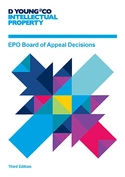Germany simplifies and modernises industrial property laws
Germany offers an outstanding system for IP protection – its patent and trade mark office (the DPMA) is the largest national IP office in Europe and the fifth largest national patent office in the world. It is however over ten years since the last major reform of industrial property protection through the Act on the Simplification and Modernization of Patent Act of 31th July 2009. The Second Act on the Simplification and Modernization of Patent Act of 10 August 2021 has further simplified and modernised the Patent Act and other laws in the field of industrial property protection.
The Second Act comprises a variety of different measures improving both acquisition and enforcement of patent and related rights at the German Patent and Trade Mark Office (Deutsches Patent- und Markenamt - DPMA) and courts, perhaps most importantly: the 31-month period for national phase entry before the GDPMA, video conferencing in DPMA procedures, injunctive relief in patent law and proportionality principle, more synchronised invalidity and infringement proceedings, and protection of trade secrets in patent litigation.
31-month period for national phase entry before the DPMA
The period for international applications (PCT applications) to enter the national phase before the DPMA as designated office or elected office will be extended to 31 months. This will allow applicants to make full use of the period for entry into the national phase and harmonise national phase entry with other jurisdictions. The amendment will enter into force on 01 May 2022.
Video conferencing (ViCo) in DPMA procedures
In procedures of suitable cases before the DPMA, parties will be able to participate in proceedings and hearings, and give evidence using image and sound transmission (video conferencing), potentially saving costs and time and accelerating the procedures. However, it will still be possible to participate in person. The amendment will also enter into force on 01 May 2022.
Injunctive relief in patent law and proportionality principle
Amendments of section 139 paragraph 1 Patent Act (PatG) and section 24 paragraph 1 Utility Model Act (GebrMG) now expressly standardise the possibility of excluding the right to cease and desist if this leads to unjustified hardship for the infringer themselves or for a third party. In case the exclusion takes effect, the infringer has to pay appropriate compensation for the future in addition to any backward-looking damages. An explicit reference to the principle of good faith indicated that the test for the unjustifiable hardship precluding injunctive relief requires an assessment of all facts and circumstances of the case, especially including the proprietor’s legitimate interests.
More synchronised invalidity and infringement proceedings
In patent litigation, invalidity (revocation) cases are heard by the Federal Patent Court (Bundespatentgericht) and infringement cases are heard by specialised civil courts of general jurisdiction (bifurcation). In case the Federal Patent Court rules on validity of a patent after a first instance infringement judgment, the infamous “injunction gap” occurs. Amendments of sections 82 and 83 Patent Act now codify that the Federal Patent Court shall immediately (without undue delay) serve the revocation action on the defendant (patentee), and that the term for the patentee to substantiate their objection is only two to a maximum of three months. Within six months of the revocation action being served, the Federal Patent Court shall issue a qualified preliminary opinion on the validity of the patent.
Protection of trade secrets in patent litigation
New section 145a Patent Act and section 26a Utility Model Act, both referring to sections 16 to 20 Act on the Protection of Trade Secrets (GeschGehG) of 18 April 2019, allow courts to take measures to preserve business and trade secrets in patent infringement proceedings. The courts can restrict the right to inspect files, exclude the public from court hearings or restrict access to certain documents to a certain number of reliable persons, for example.
The Second Act also addresses the Trade Mark Act, Semiconductor Protection Act, Design Act and industrial property related ordinances as well as fees including renewal fees of supplementary protection certificates, taking effect on 01 May 2022.
Further, the “Act on Further Duties of the German Patent and Trade Mark Office and to Revise the Patent Costs Act” of 30 August 2021 expands the responsibilities of the DPMA to act as a central point of contact for European, international and other national office, and fees including renewal fees for patent applications and patents. The Act, taking effect on 01 July 2022, aims to reduce the inflation-related decline of fee levels, and also adjusts the renewal fees of patent applications and patents.


